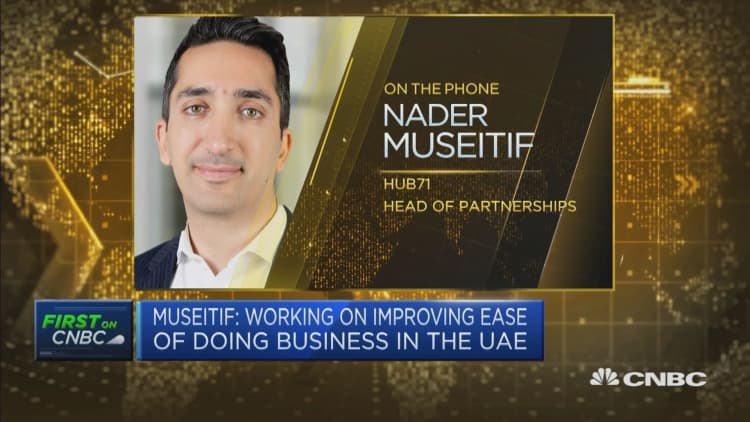The Abu Dhabi bourse is making a fresh pitch to international investors, as it seeks to reverse a decline in first-half trading value linked to the coronavirus pandemic.
Abu Dhabi Securities Exchange (ADX) said its total trading value fell to AED 40.7 billion ($11.08 billion) in the six months to June 30, compared to AED 54.7 billion in the same period a year ago. Volumes were less impacted, with 14.2 billion shares traded in the first half, down from to 14.6 billion.
"We hope to see trading values and volumes picking up to their levels of 2019 or better," ADX Chief Executive Khalifa Al Mansouri told CNBC's Capital Connection. The exchange said the year-on-year decrease was inevitable given Covid-19, and was similar to the experience of other exchanges around the world.
The Abu Dhabi Exchange is the second-largest exchange in the region, behind Saudi Arabia's Tadawul. It plays host to the UAE's largest listed institutions including First Abu Dhabi Bank and Etisalat, and had a market capitalization of more than AED 600 billion at the close of trade on Monday.
Like its regional rivals, the exchange is now trying to attract more foreign investors, find high quality listings and develop a more varied domestic investor base to support Abu Dhabi's economic recovery as market conditions improve.
"We've looked at every obstacle that investors and companies perceived, and we're talking to them one by one," Al Mansouri added. He pointed to a 25% increase in the number of non-UAE nationals registering to invest on ADX compared to the first half of 2019 as a sign that interest was slowly growing.

In the first six months of 2020, three ADX-listed companies raised foreign ownership limits to 49 percent and one increased to 40 percent, making AED 6.3 billion of stock in these companies accessible to foreign investors.
"Foreign ownership has been historically one of the limiting factors when it comes to attracting investors," Al Mansouri said. "Giving the opportunity for more investors to be allowed to legally invest in those companies and those sectors is a good idea, and listed companies understand the value that comes from fresh money and investment from abroad into their equity."
He said 55 ADX-listed companies were now accessible to foreign investors, representing 80 percent of the exchange.
Pandemic sparks new investment drive
The push for new business comes as the United Arab Emirates attempts to hit fast-forward on its post-coronavirus economic recovery, like other Gulf countries hit by collapsing oil prices and the pandemic.
"We are optimists," Al Mansouri said. He expects the green shoots of economic recovery to materialize in early 2021, when the impact of government stimulus measures will be better reflected in the capital markets.
Al Mansouri also welcomed a recent move by Saudi Arabia to introduce a derivatives trading market, saying it would increase the maturity of the regional exchanges.
"We are working with Tadawul and other markets to increase the awareness and education about the different kinds of derivative trading and instruments," he said.


